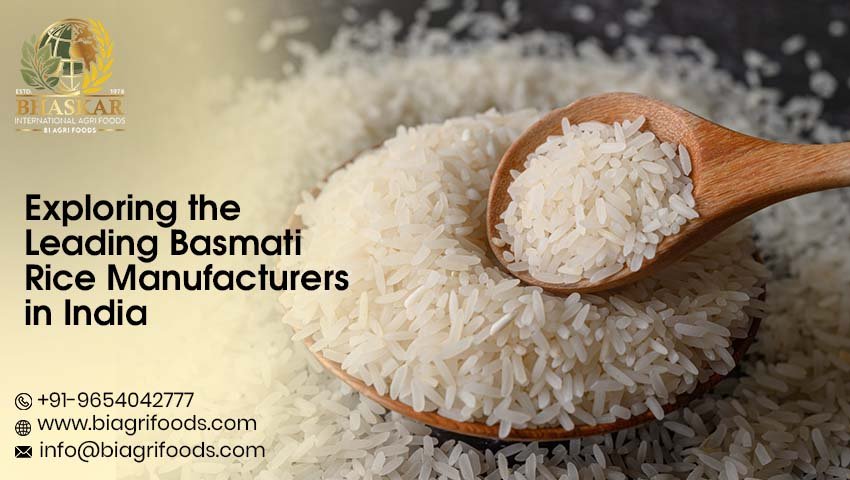
Exploring the Leading Basmati Rice Manufacturers in India
Basmati Rice Manufacturers in India - The long grains, distinctive taste and strong fragrance of basmati rice make it famous around the globe. Owing to advanced processing techniques of basmati rice, India which is the largest producer and exporter of basmati is greatly benefitted by its fertile lands and ideal climate.
With increasing demand in local and international markets, innovation in production and packaging has become a necessity. Highly reputed manufacturers provide easy access to top grade basmati rice that complies with international regulations and food safety standards, hence providing an exceptional product to the consumers.
The Role of Quality in Producing Basmati Rice
Every aspect of basmati rice production needs to be accurate and precise, coupled with great attention to detail. The quality of rice is judged based on several parameters including grain length, purity, aroma and nutritional value. Basmati have to go through various quality controls before being served to the consumers.
Manufacturers do not rely only on quality assurance. Packaging and proper storage are equally important to retain the freshness of rice. Storage conditions are important for retaining the quality of the grain and preventing spoilage. Increased consumer awareness has prompted a number of companies to adopt sustainable farming practices to produce organic, chemical-free basmati rice.
Important Aspects in the Making of Basmati Rice
Basmati rice production includes several phases which must be completed in a sequential manner in order to deliver the desired end product. The following factors strongly influence the quality of rice:
- Paddy Selection: A properly selected paddy expands and elongates to offer aromatized grains which are high in nutrition and make the ideal basmati rice.
- Milling and Processing: With the aid of modern milling technology, the removal of husks is completed alongside other impurities without the destruction of the grain. The rice is polished down to a degree which still allows for the retention of vital nutrients alongside the outstanding natural flavor ensuring the quality of rice remains intact.
- Aging Process: When basmati rice is aged with time, it improves flavor, texture and cooking characteristics. With time, well aged rice also takes in water much easier, has a higher expansion ratio during cooking, alongside developing a much deeper flavor compared to rice which is recently harvested.
- Packaging and Storage: The aroma, freshness and longevity of basmati rice can be retained by proper packaging. To achieve ideal consumer conditions, vacuum sealed or airtight packaging helps avoid contamination, defends against moisture and increases the shelf life of the rice.
Identifying Characteristics of Reliable Basmati Rice Suppliers
A basmati rice manufacturer is chosen based on factors that determine reliability and commitment to quality:
- Complies With Food Safety Standards: The prominent manufacturers have food safety national and international certifications such as ISO, FSSAI, HACCP and APEDA. Having such certifications guarantee that the rice will be of great quality and hygienic.
- Modern Infrastructure Development: The integration of automation technology and precision machinery like modern rice mills offers little to no human interference which improves the quality of the rice.
- Diverse Range of Rice Varieties: Comprehensive producers market offer different varieties of basmati rice like traditional, organic, extra-long grain and premium-aged give a diverse selection to suit the needs of consumers and businesses.
An Analysis of the Indian Basmati Rice Industry
Conclusion
If you are looking for Basmati Rice Manufacturer in India, Bhaskar International Agri Foods have been masters in cultivating, processing and exporting basmati & non basmati rice. Our specialty, fragrant Basmati Rice, is aged naturally so that it can take its place on the table of every family with authentic flavors ready to cherish smelling nourishing meals.

